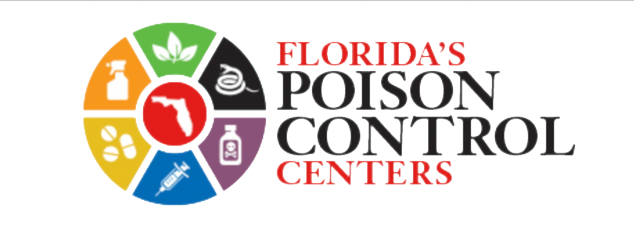Multi-Scope contract with Florida Poison Information Center includes leveraging social media to proactively identify poison-related events.
“We must actively leverage our large exposure data set to continue to monitor, mitigate, report and predict public health threats,” said Dr. Dr. Jay Schauben, Director of the Florida/USVI Poison Information Center – Jacksonville and the FPICN Data Center.
JACKSONVILLE, FL – JANUARY 09, 2014
The Florida Poison Information Center Network (FPICN), with poison centers in Jacksonville, Tampa and Miami, has been serving the 19.3 million residents of Florida for over 20 years. During that time, they have been the front-line defense against a wide-variety of public health threats related to poisonings by medications, chemicals and toxic environmental issues. These threats require the FPICN’s health professionals to provide emergency service and advanced information support 24-7-365 to provide a reassuring voice and guidance when a child may have accidentally ingested something, critical triage, management and monitoring advice in response for critically ill poisoned patients in the hospital, as well as disaster support for after-effects of hurricanes and other environmental disasters.
Over the years the FPICN has developed sophisticated data collection, analysis and reporting tools to provide an epidemiologic view to better patient care and to better prepare for the next event. This technology includes a custom electronic health record application, which allows the poison center’s nurses, pharmacists and physicians to adequately manage their patients, while collecting the vital information that fuels their public health surveillance efforts for Florida’s residents.
Like many public-safety organizations, the Center is feeling the disruption of social media and other recent technological advances. What was originally set-up to deliver information through telephone conversations now has to adjust to the age of texting, chatting, Twitter, Facebook and Instagram.
“In order for public health benefits to be realized in patient care and surveillance activities, we have to accept that telephonic communication may not be the contact methodology of choice in the more recent generations. We must focus on evolving to continue to remain relevant with the largest audience possible to continue to deliver high-quality, timely and cost-efficient services to the residents of Florida,” said Dr. Jay Schauben, Director of the Florida/USVI Poison Information Center – Jacksonville and the FPICN Data Center. “Likewise, we must actively leverage our large exposure data set to continue to monitor, mitigate, report and predict public health threats.”
The focus on outreach and education has prompted the Florida Poison Information Center Network to find an information technology vendor with the experience to merge large and disparate data sets together and provide advanced predictive analytics. That search ended with Jacksonville, FL-based NLP Logix who, over the course of a number of months, were able to demonstrate their capabilities to the FPICN and deliver world-class predictive modeling.
“This was definitely a challenge,” said Robert Marsh, Chief Technology Officer, NLP Logix. “The data sets we are merging are quite large. They include the past eight years of hospital utilization information, which has been voided of personal information, but still contains over 40 million records as well as every Tweet during the same time period. This data set is very rich in providing the Florida Poison Information Center Network with valuable insights.”
About the Florida Poison Information Center Network
Created by an act of the Florida Legislature in 1989 (FS 395.1027), the Florida Poison Information Center Network incorporates poison centers in Jacksonville, Miami, and Tampa and includes the Florida Poison Information Center Network Data Center that coordinates data collection and analysis for the entire system. Currently, the FPICNCenters receive approximately 300–540 calls each day from Floridians as well as the U.S. Virgin Islands.





